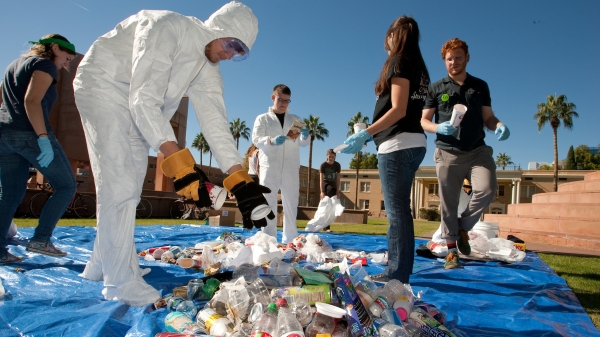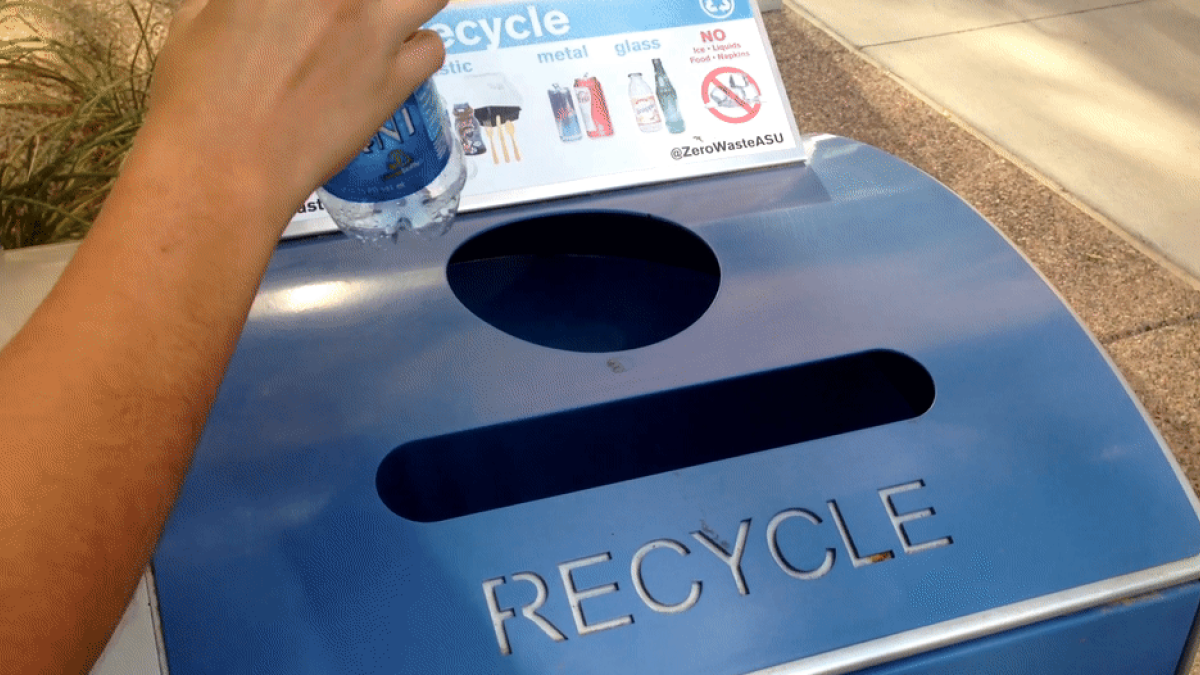Invest in reusable grocery bags. Shop for in-season, local produce. Incorporate meatless recipes into your meal plans. Recycle. Many consumers are familiar the basics of shrinking their carbon footprint. But can we do more?
Brigitte Bavousett, an instructor in the Julie Ann Wrigley Global Institute of Sustainability, has some tips for becoming more sustainable in 2017.
Question: Beyond in-season produce and trying new meatless recipes, what are other ways consumers can be more sustainable with their diet and grocery shopping?
Answer: One thing consumers can do is avoid products containing palm oil. Palm oil is extremely detrimental to the world through rainforest destruction, human rights abuses, wildlife abuse, illegal smuggling and many other ways. Information on palm oil and palm oil-free products can be found online at http://www.saynotopalmoil.com/.
Additionally, consumers can look for products not packaged in plastic. This can be challenging, but options include peanut butter packaged in glass jars, cage-free organic eggs in non-plastic and recyclable cartons, purchasing produce with a reusable canvas bag, etc. Also, if you forget your reusable bag, ask for paper. In 1977, when we were first given the choice of paper or plastic, the sales pitch was that plastic bags would save forests. In reality, trees are a renewable resource but plastic is petroleum-based and made with chemicals that damage our environment.
Q: Researchers have found that fast fashion has a heavy impact on the environment. What are some ways consumers can more sustainably shop for clothing while being price conscious?
A: I highly recommend the documentary “The True Cost,” which is available on Netflix, as a resource to learn more about fast fashion. Making the more sustainable choice in fashion, such as purchasing sustainably grown textiles or locally designed, sourced and manufactured items, can be more expensive. But consumers also have thrift store options, and we can buy clothes at consignment stores as well.
Q: Are there any popular misconceptions about sustainability?
A: That it’s more expensive. Yes, organic foods often cost more up front, but if you’re saving health care costs by not ingesting as many additives, chemicals or pesticides, you’re better off. The costs of solar and wind are coming down, and as always renewable energies are less expensive in the long run due to the external costs of fossil fuels.
Q: Do you have any favorite apps, books or blogs that can help consumers learn more and stay on track?
A: I recommend https://www.buycott.com/ as well as http://dotearth.blogs.nytimes.com.
Also, the dean of ASU’s School of Sustainability has a blog with information on current trends, thinking and technologies, and that can be found online at https://deanboone.asu.edu/.
Learn more
Want to get more involved? Check out the Sustainability Solutions Festival.
What: A series of events — including community forums and film screenings — aimed at discovering and exploring how we can individually and collectively reimagine our lives and our planet.
When/where: Various events and locations throughout February.
Details: Find information on the individual events as well as a Storify roundup of previous festivals at https://sustainability.asu.edu/sustainabilitysolutions/programs/solutionsfestival.
More Environment and sustainability

Celebrating Earth Day around the world
Originating in the United States in 1970, Earth Day is now celebrated worldwide. But even before it became an official day, many…

A run on fossil fuels: ASU professor says climate legislation could have unintended consequences
As concerns about climate change grow, policymakers are increasingly voicing support for stricter fossil fuel legislation. Their…

Confusion complicates US recycling efforts
In most major cities and buildings, recycling bins can often be found alongside trash bins in an effort to encourage recycling.…
